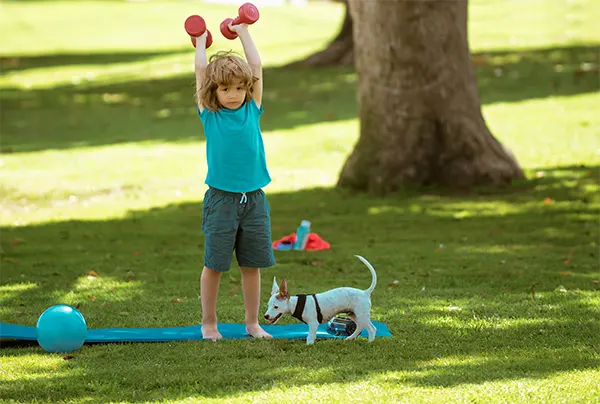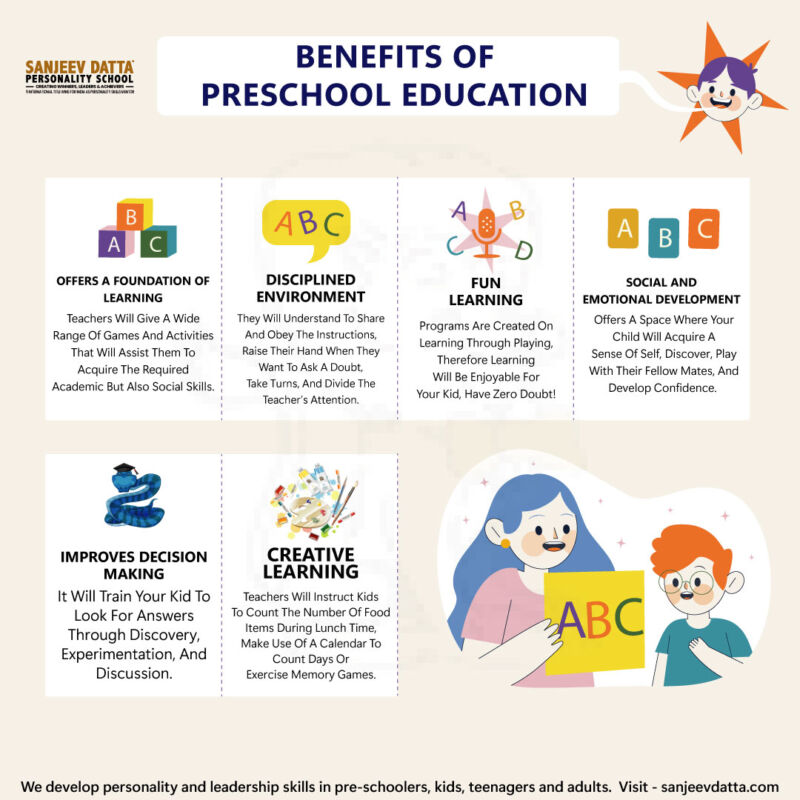These early years are a crucial time for establishing routines and behaviors that will set the stage for a lifetime of well-being. Healthy habits for kids are not just about avoiding illness; they are about empowering children to lead happy, balanced, and fulfilling lives. Whether it’s eating nutritious meals, staying active, or fostering emotional resilience, the habits we instill in our children today will shape their futures in profound ways.
But how can we, as parents, caregivers, and educators, effectively nurture these habits in children? How can we ensure that the lessons we teach will stay with them as they grow? This article explores the importance of building healthy habits for kids and offers practical strategies to make these habits a natural part of their daily lives. From promoting a love for physical activity to encouraging mindful eating, we’ll delve into ways to create a foundation of health that will benefit children for years to come.
Why Building Healthy Habits Early is Crucial?
The habits formed during childhood are the building blocks for a lifetime of health and well-being. Here’s why it’s essential to start cultivating healthy habits early:

1. Foundation for Lifelong Wellness
The routines and behaviors children learn in their early years often carry into adulthood. Whether it’s maintaining a balanced diet, practicing regular exercise, or developing emotional resilience, these early habits set the stage for lifelong wellness.
2. Support for Physical Development
During childhood, the body undergoes significant growth and development. Healthy habits, such as proper nutrition and regular physical activity, are critical for building strong bones, muscles, and immune systems.
3. Mental and Emotional Growth
Healthy habits also contribute to mental and emotional well-being. Teaching children how to manage stress, express their feelings, and build strong relationships helps them develop the emotional intelligence needed to navigate life’s challenges.
Visit: physical activity in child development
4. Academic Success
There is a strong link between physical health and academic performance. Children who maintain healthy eating habits, get regular exercise, and enjoy sufficient sleep are more likely to perform well in school. These habits help them stay focused, energized, and ready to learn.
5. Prevention of Chronic Diseases
Many chronic health conditions, such as obesity, type 2 diabetes, and heart disease, have roots in childhood habits. By fostering healthy behaviors early on, we can help prevent these conditions and promote a healthier future for our children.

Building Healthy Eating Habits
Nutrition is a cornerstone of health, and instilling healthy eating habits in children is vital for their growth and development. Here’s how to encourage nutritious eating:

1. Lead by Example
Children often mimic the behaviors of the adults around them. By making healthy food choices yourself, you set a positive example for your children. Make mealtimes a family event where everyone enjoys a balanced diet that includes fruits, vegetables, whole grains, and lean proteins.
2. Involve Kids in Meal Preparation
When children are involved in meal planning and preparation, they are more likely to take an interest in what they eat. Take them grocery shopping, let them choose fruits and vegetables, and include them in simple cooking tasks. This hands-on experience helps them understand the importance of nutrition and makes healthy eating fun.
3. Create a Positive Mealtime Atmosphere
Mealtimes should be a relaxed and enjoyable experience. Turn off the TV, put away smartphones, and focus on the food and conversation. A positive mealtime environment encourages mindful eating and helps children develop a healthy relationship with food. Make your kids unforgettable: elevate their presence, persuasion, and power with our comprehensive personality development course!
4. Introduce a Variety of Foods
Exposing children to a wide range of foods early on helps them develop a taste for different flavors and textures. Don’t be discouraged if they are hesitant to try new foods; it often takes multiple exposures before a child accepts a new food. Encourage them to taste a variety of healthy options, but avoid pressuring them to eat something they don’t like.
5. Establish Consistent Meal and Snack Times
Having regular meal and snack times helps regulate a child’s appetite and ensures they get the necessary nutrition throughout the day. Offer healthy snacks like fruits, yogurt, or whole-grain crackers between meals to keep their energy levels stable.
Encouraging Regular Physical Activity
Physical activity is essential for a child’s physical, mental, and emotional development. Here’s how to encourage children to stay active:

1. Make Physical Activity a Family Routine
Children are more likely to be active if they see their family members being active. Plan regular family activities that involve physical movement, such as hiking, biking, or playing sports. These activities not only keep kids active but also provide quality family time.
2. Limit Screen Time
Excessive screen time can lead to a sedentary lifestyle, which is detrimental to a child’s health. Set limits on the time children spend watching TV, playing video games, or using electronic devices, and encourage them to engage in more physically active pursuits instead.
3. Encourage Active Play
Active play is one of the most effective ways for children to get the exercise they need. Provide toys and equipment that promote movement, such as balls, jump ropes, or bicycles. Encourage outdoor play, where children can run, climb, and explore their surroundings.
4. Enroll in Sports or Dance Programs
Organized sports or dance classes are excellent ways for children to stay active, learn new skills, and develop social connections. Find an activity that your child enjoys, whether it’s soccer, swimming, ballet, or martial arts, and encourage regular participation.
5. Be a Role Model
As with healthy eating, children are more likely to be active if they see their parents and caregivers being active. Prioritize physical activity in your own life, and your children are likely to follow suit.
Visit: why money management for kids
Promoting Good Hygiene and Sleep Habits
Good hygiene and adequate sleep are critical components of a child’s overall health. Here’s how to promote these essential habits:

1. Teach Proper Handwashing
Handwashing is one of the simplest and most effective ways to prevent the spread of illness. Teach children to wash their hands with soap and water for at least 20 seconds, especially before eating, after using the bathroom, and after playing outside.
2. Establish a Consistent Bedtime Routine
A regular bedtime routine helps children wind down and signals that it’s time for sleep. Create a calming pre-sleep ritual that might include a bath, reading a book, or listening to soft music. Ensure that the child’s sleeping environment is conducive to rest, with a comfortable bed and minimal noise or light.
3. Set Regular Sleep and Wake Times
Consistency is key when it comes to sleep. Set regular bedtimes and wake-up times, even on weekends, to help regulate your child’s internal clock. Ensure they are getting the recommended amount of sleep for their age, typically between 9 to 12 hours for school-aged children.
4. Promote Oral Hygiene
Good oral hygiene is essential for preventing cavities and gum disease. Teach children to brush their teeth twice a day with fluoride toothpaste and to floss daily. Make regular dental check-ups a part of their routine to maintain healthy teeth and gums.
5. Limit Sugary Foods and Drinks
Excessive sugar can lead to dental problems as well as other health issues. Encourage children to drink water instead of sugary drinks and offer healthy snacks like fruits, vegetables, and whole grains instead of candy or cookies.

Fostering Mental and Emotional Well-Being
Mental and emotional health is just as important as physical health. Here’s how to nurture it:

1. Encourage Open Communication
Create an environment where children feel comfortable expressing their thoughts and feelings. Encourage them to talk about their day, their challenges, and their successes. Listen actively and provide support and guidance when needed.
2. Teach Stress Management Techniques
Children can experience stress just like adults, and it’s important to teach them how to manage it. Introduce them to relaxation techniques such as deep breathing, mindfulness, or yoga. Encourage them to take breaks and engage in activities that they enjoy to help reduce stress.
3. Promote Positive Self-Esteem
Help children develop a positive self-image by praising their efforts and accomplishments rather than focusing solely on outcomes. Encourage them to set realistic goals and view mistakes as opportunities for learning and growth.
4. Foster Social Connections
Strong social connections are vital for emotional well-being. Encourage children to build and maintain friendships by participating in group activities, attending social events, and staying connected with family and friends.
5. Model Emotional Regulation
Children learn how to manage their emotions by observing the adults around them. Model healthy emotional regulation by managing your stress, expressing your feelings constructively, and maintaining a positive attitude. Encourage your child to do the same by discussing emotions and appropriate ways to express them. Your kids should learn how to thrive in any situation with a polished and powerful personality development training program!
Encouraging Lifelong Learning and Curiosity
Fostering a love of learning and curiosity is another key component of building healthy habits for kids. Here’s how to nurture it:
1. Create a Learning-Rich Environment
Surround children with books, puzzles, games, and other learning materials that spark their curiosity and encourage exploration. Provide opportunities for hands-on learning through activities like science experiments, art projects, and nature exploration.
2. Encourage Questions and Exploration
Children are naturally curious, and it’s important to nurture that curiosity. Encourage them to ask questions, explore new topics, and seek out answers on their own. Provide guidance and resources to help them learn and grow.
3. Support Their Interests
Every child has unique interests and talents. Encourage them to pursue their passions, whether it’s in sports, music, art, or academics. Support their efforts by providing resources, attending events, and celebrating their achievements.
4. Limit Passive Entertainment
While it’s okay for children to enjoy screen time, limiting passive entertainment like watching TV or playing video games is important. Encourage more active forms of learning and entertainment, such as reading, playing outdoors, or engaging in creative activities.
5. Be a Role Model
Children are more likely to develop a love of learning if they see their parents and caregivers engaged in lifelong learning. Show interest in new topics, read regularly, and share your learning experiences with your child.
Visit: why continuous learning for kids
Conclusion
Building healthy habits for kids is not just about teaching them to eat well and exercise; it’s about laying the foundation for a balanced, fulfilling life. These habits, established early on, will shape their physical health, mental well-being, and overall happiness as they grow into adults. By modeling positive behaviors, creating a supportive environment, and encouraging curiosity and exploration, we can help our children develop the healthy habits that will guide them throughout their lives.
Healthy habits for kids are the key to ensuring that they grow up strong, resilient, and ready to take on the challenges and opportunities that life presents. As we guide them through these formative years, remember that the habits we instill today will have a lasting impact on their future. By prioritizing health and well-being in all aspects of their lives, we set our children on a path to success, happiness, and a lifetime of wellness.


